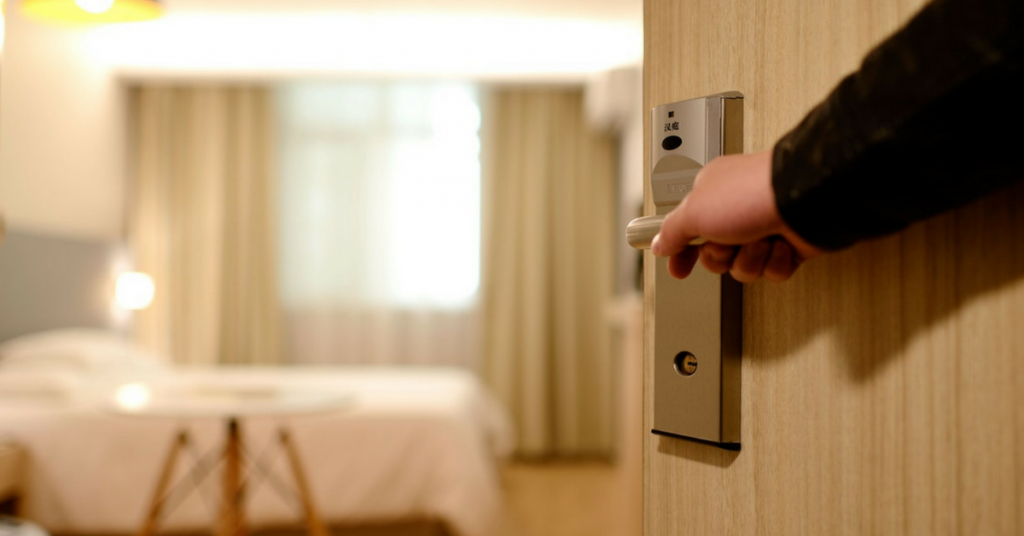When we received PCS orders to the Washington D.C. area, our plans certainly did not include living in a hotel for six months with an escape artist cat.
In our minds, we would be in temporary lodging for a few weeks while we closed on a new house. With a July move, we fully expected to have household goods delivered by August and be celebrating the holidays in our new home.
My husband and I had firmly decided we wanted to buy a house in the area. He was a cyber operations specialist and I had just separated active duty myself, and still maintained a current security clearance. Between a heady mix of defense contractor jobs available for me and the likelihood of an extended military assignment for him, we knew buying would be a smart move.
We had no idea that decision might take six months.
Due to a ridiculously tight housing market, we struggled to find anything that fit our realistic, non-million dollar budget. Homes that did fit our needs were gone in hours. Others needed such extensive repairs, as to be unfeasible. Days ticked by, summer eased into fall and by the time we finally found a 1950’s Cape Cod with renovations we could actually afford, our California wardrobe of shorts and flip-flops were useless. Our winter clothes were in our household goods, which had gone into storage, and I had received a job offer working downtown – which required a new professional wardrobe. We shook our heads in frustration at trying to figure out how to make living in a hotel with 250 square feet of space functional.
It turned out to be a very powerful lesson in embracing minimalism.
What is Minimalism?
Minimalism can best be explained over many mediums. It appears in art, music, fashion and architecture. Merriam Webster defines it as, “a style or technique characterized by extreme spareness and simplicity.” Others explain minimalism as a lifestyle. In the book, “The Life-Changing Magic of Tidying Up,” Marie Kondo challenges readers to evaluate what items in their environment bring them joy and how to eliminate clutter with the KonMari Method. The military tends to define and embrace minimalism as doing “more with less.”
In our own lives, as we learned to function and live with less, we slowly discovered several advantages in a lifestyle stripped down to the essentials.
1. Re-evaluating purchases
We quickly realized any purchases brought into our tiny space had to be carefully evaluated. Limited by pure square footage and storage capacity, we were forced us to bring in less of everything. It didn’t take long for the habit to become second nature and lead to new shopping patterns.
2. Saving more than just money
As we shopped smarter and bought only essentials, we weren’t surprised that we started saving real money. What did come as a surprise however, was the feeling of actually having more. With less physical space to fill up, and a reduced urge to do so, we not only gained more money and time, we also gained a fresh sense of renewed mental space. Adopting a minimalistic lifestyle created more room for things that mattered.
3. Collecting experiences versus things
Instead of collecting “stuff” that always seemed to turn into clutter, we developed a new focus on collecting fresh experiences. We had more money to travel, to explore new neighborhoods or try a unique restaurant. We quickly embraced this new feeling of liberation – and I knew unequivocally that we had made a permanent lifestyle shift.
4. A new sense of freedom
By the time we finally moved into our home, we were ready for a new change. As we slowly unpacked the sky-high boxes, we realized that by living in a hotel with less, we had refined our priorities. What we truly needed was quickly distinguishable from what could be culled and eliminated. As a result, our next PCS was cleaner and lighter, which turned out to be a very powerful lesson for an overseas assignment. We were allotted 14,000 pounds for Germany and couldn’t help but giggle when our household goods topped the scales at a mere 3,700 pounds.
What began as a challenging PCS turned into a beautiful and liberating life lesson in simplicity. And couldn’t we all use a little more simplicity in this crazy, but wonderful military life.


